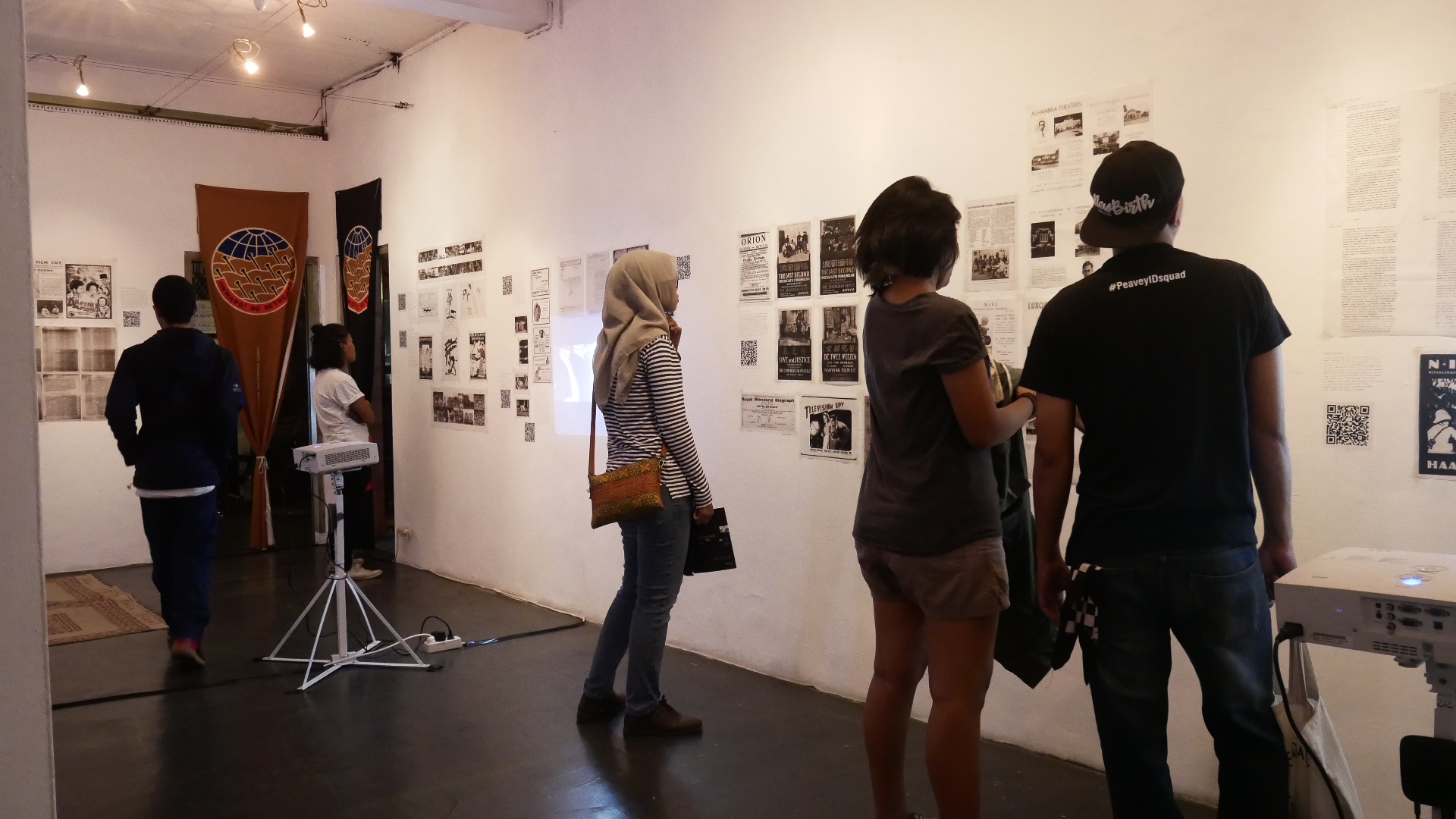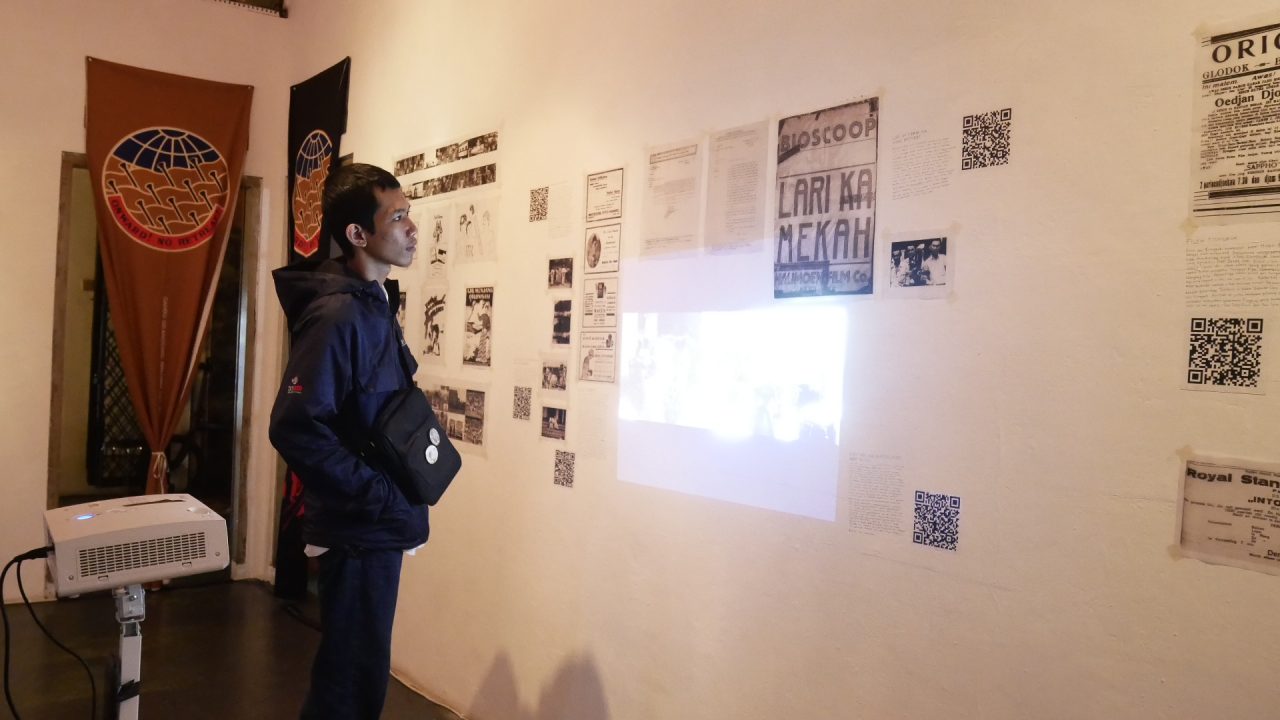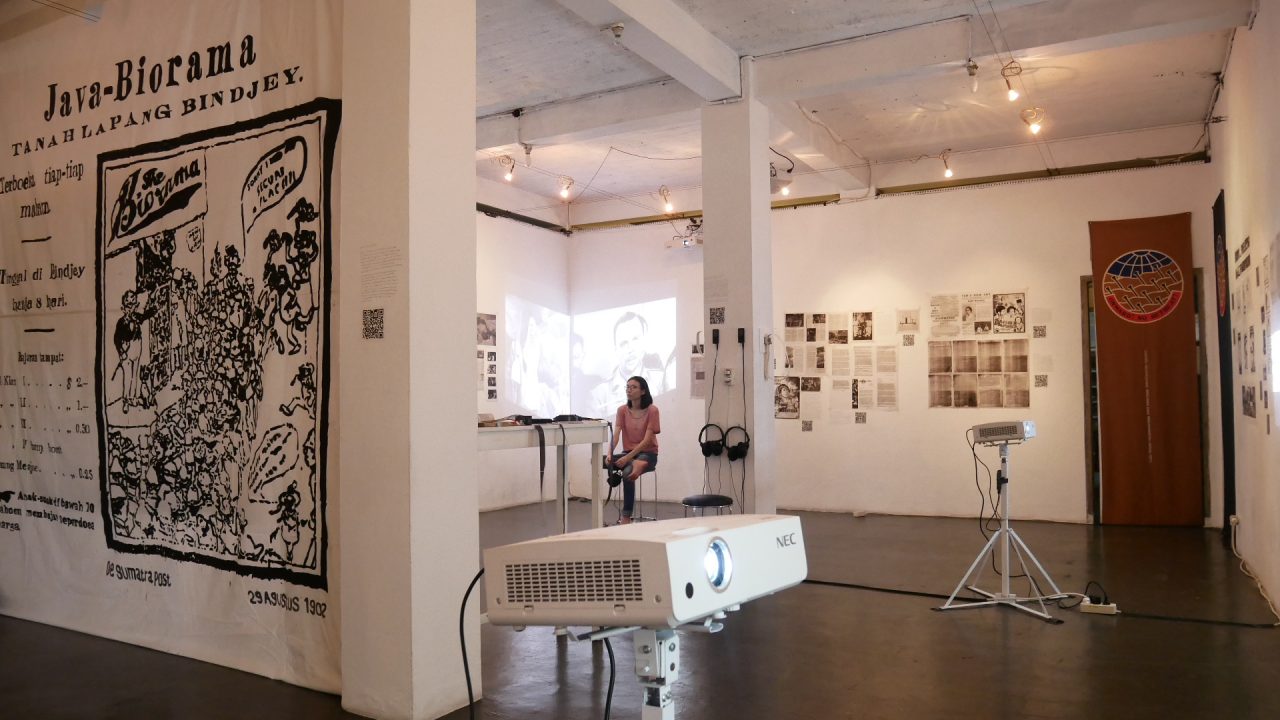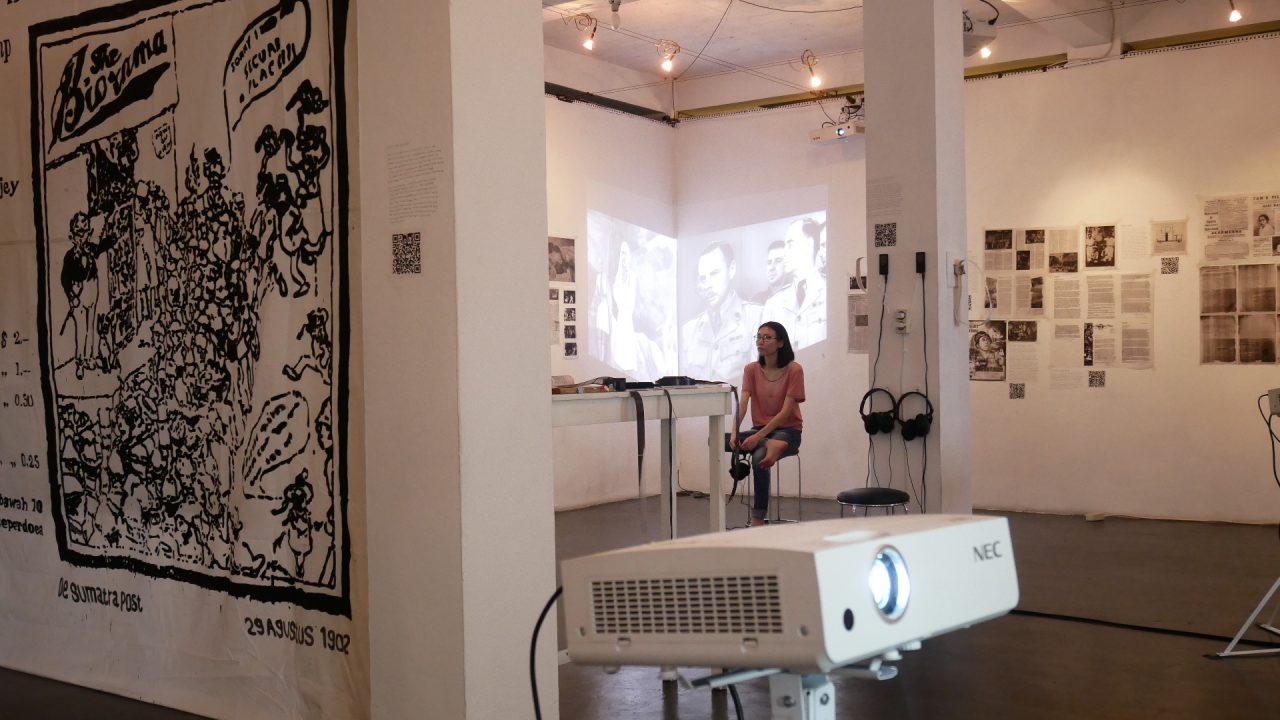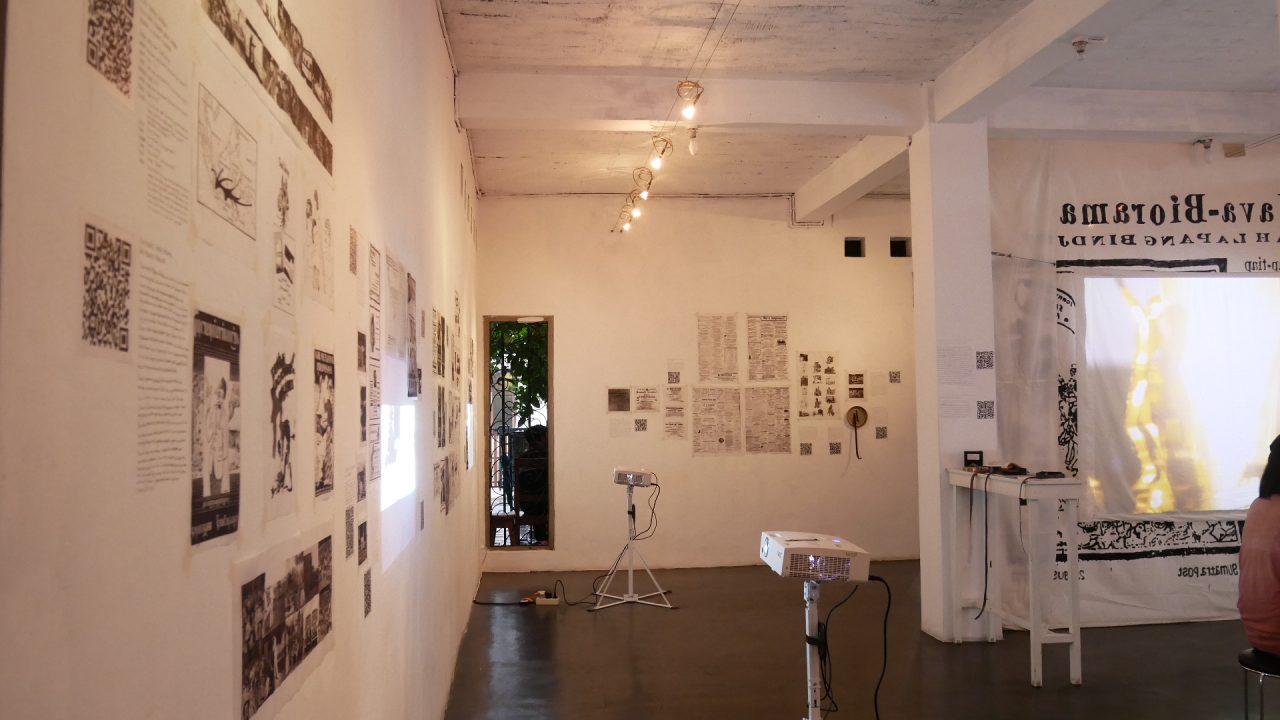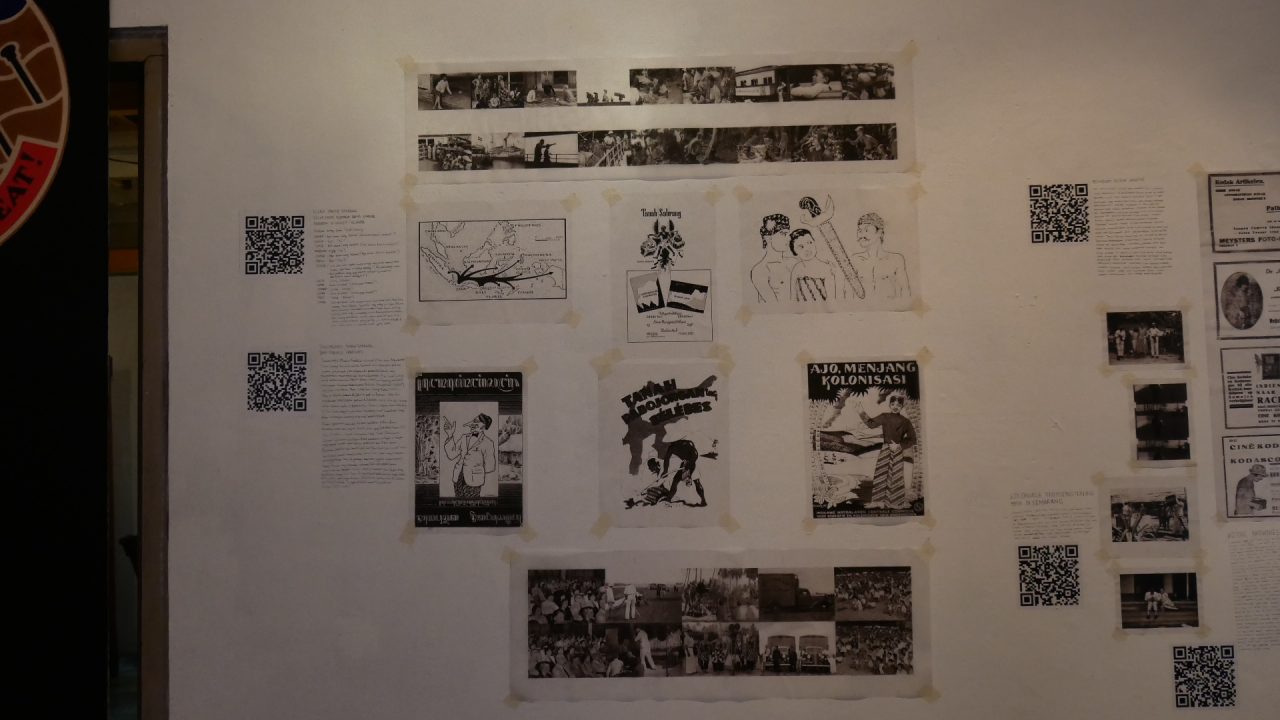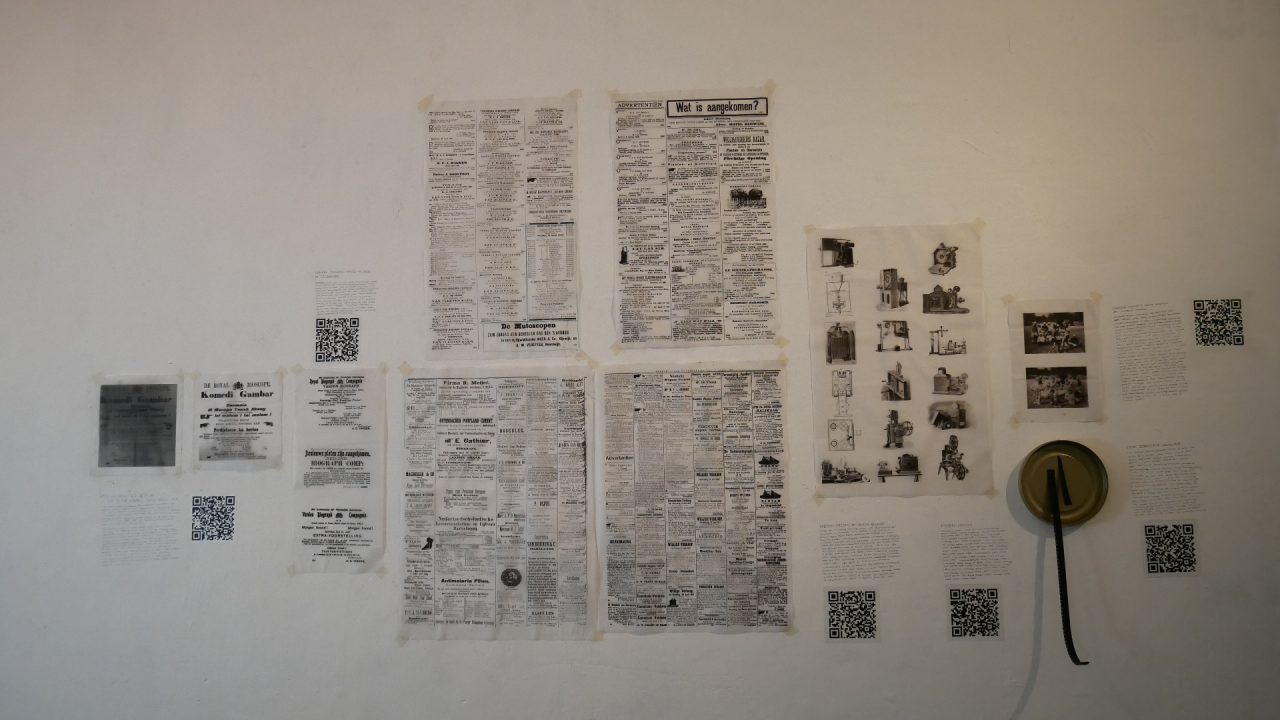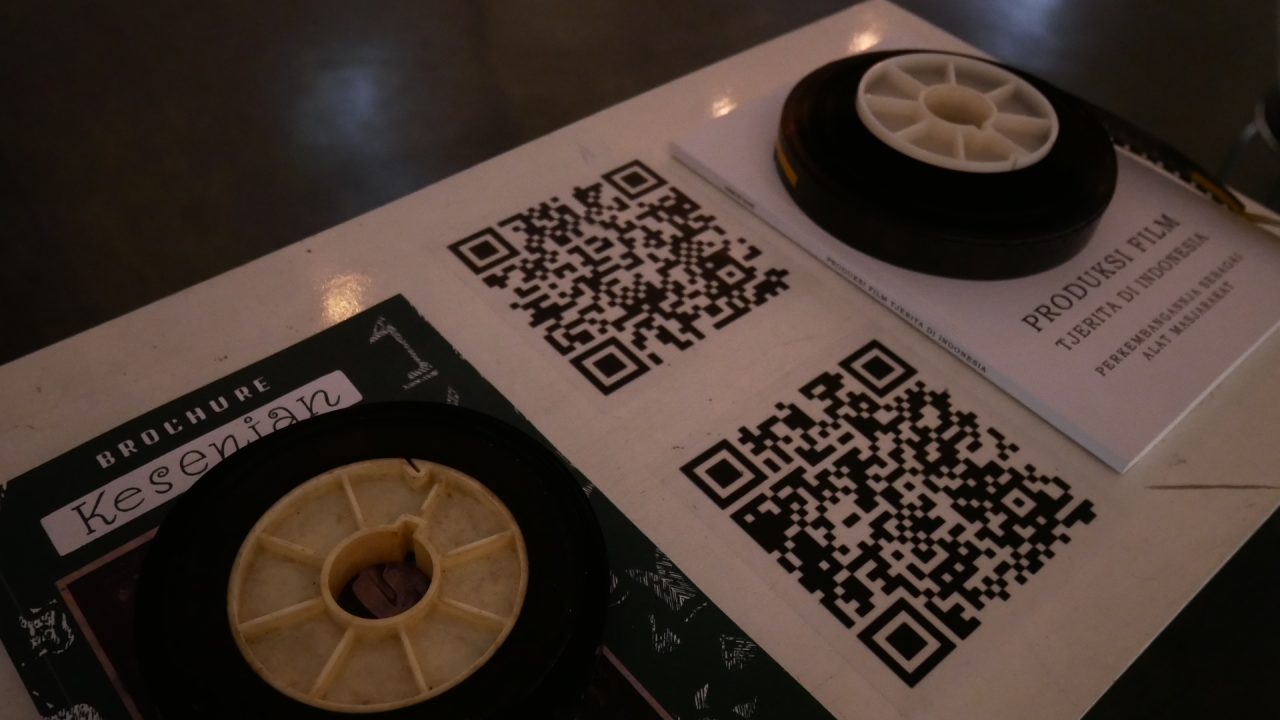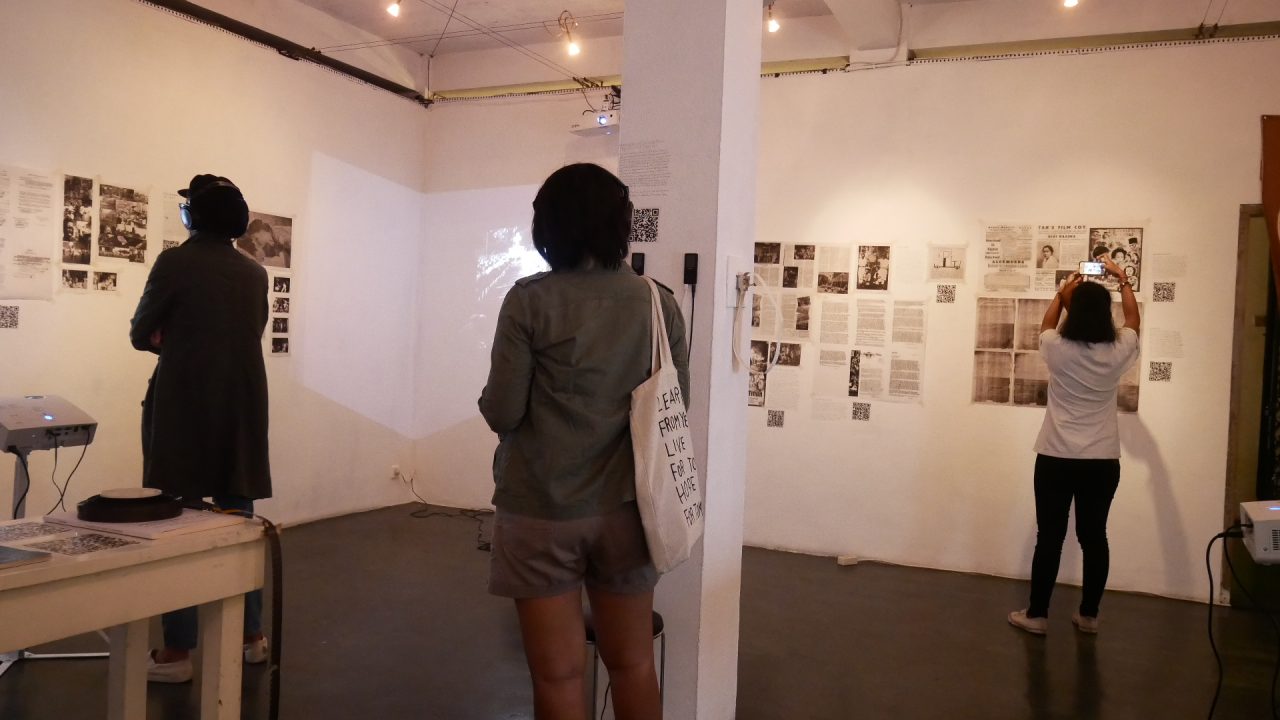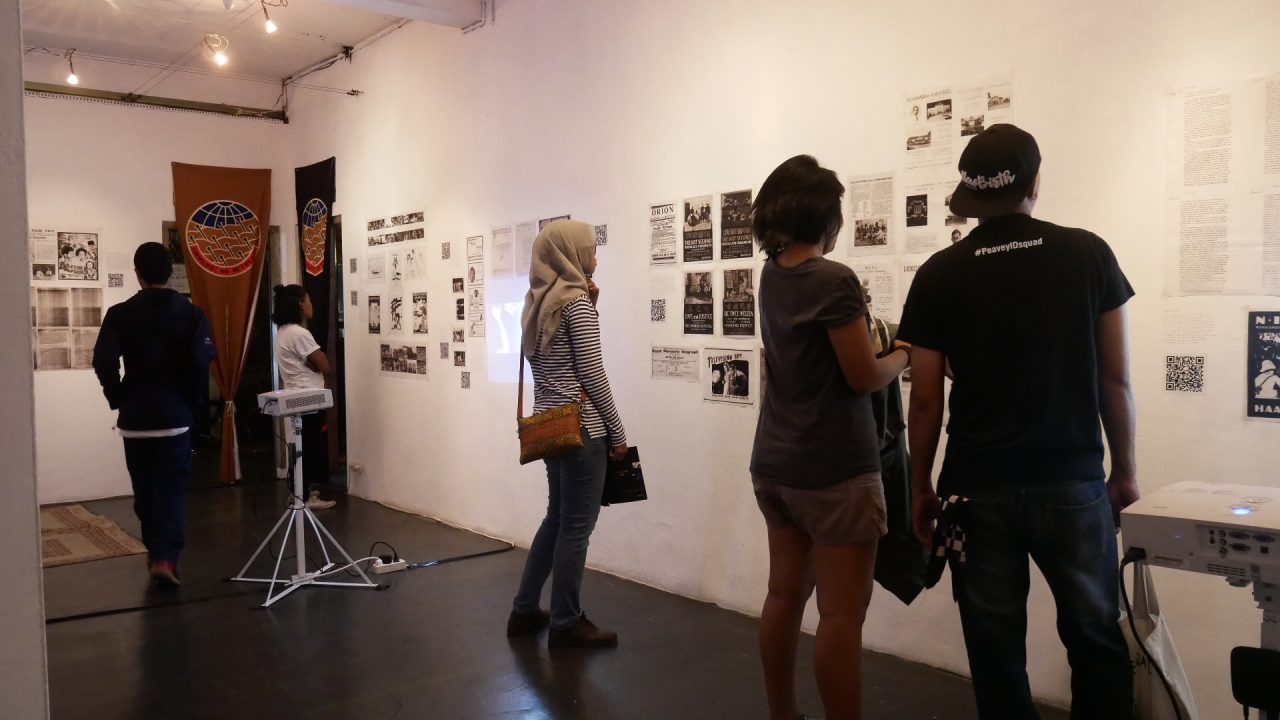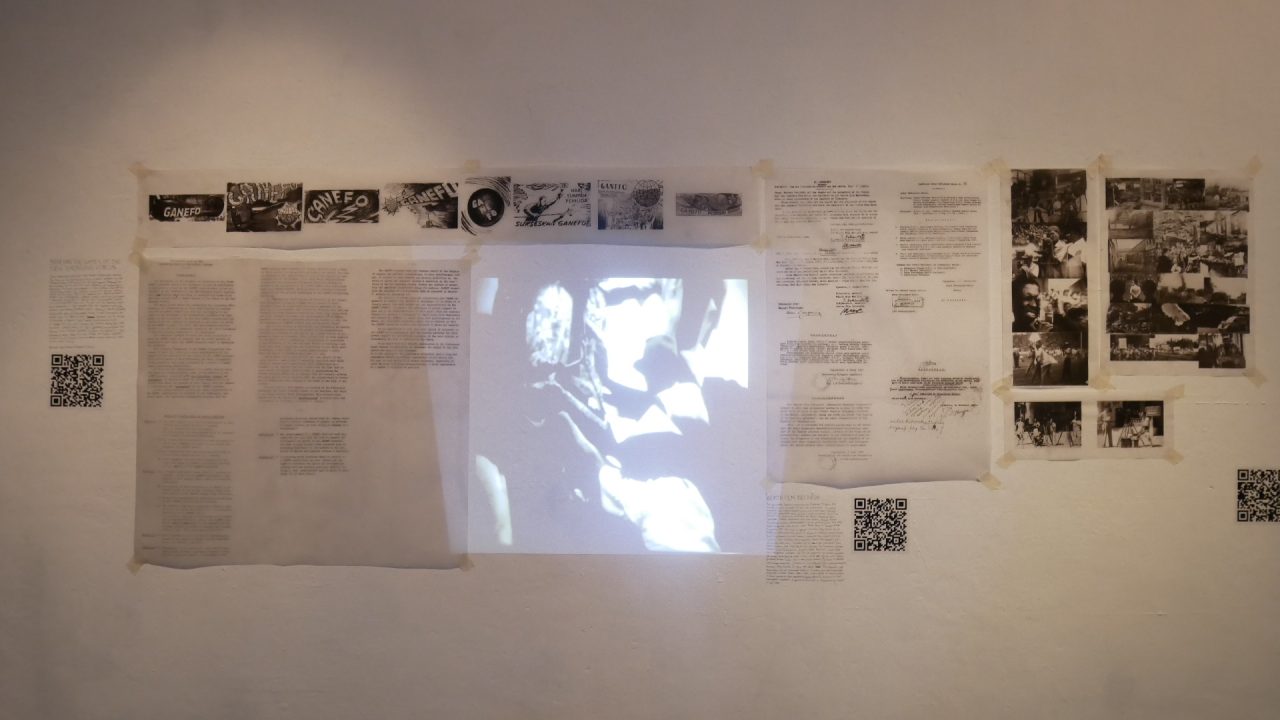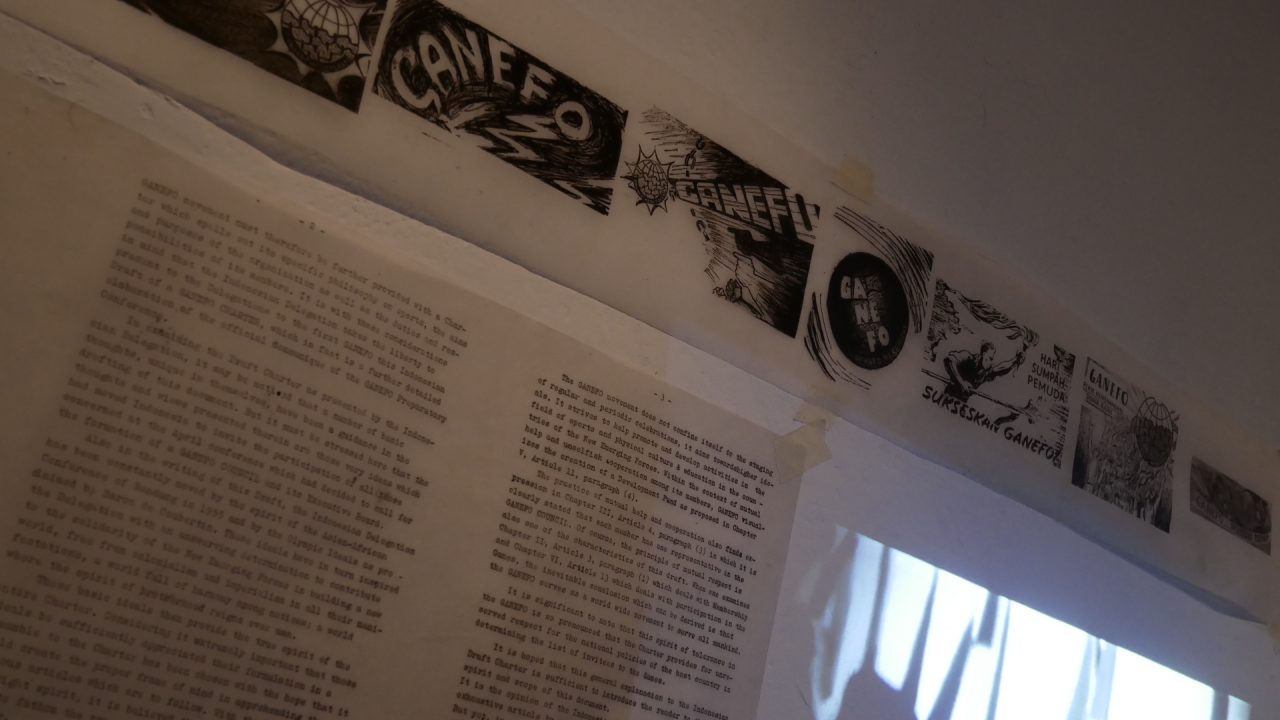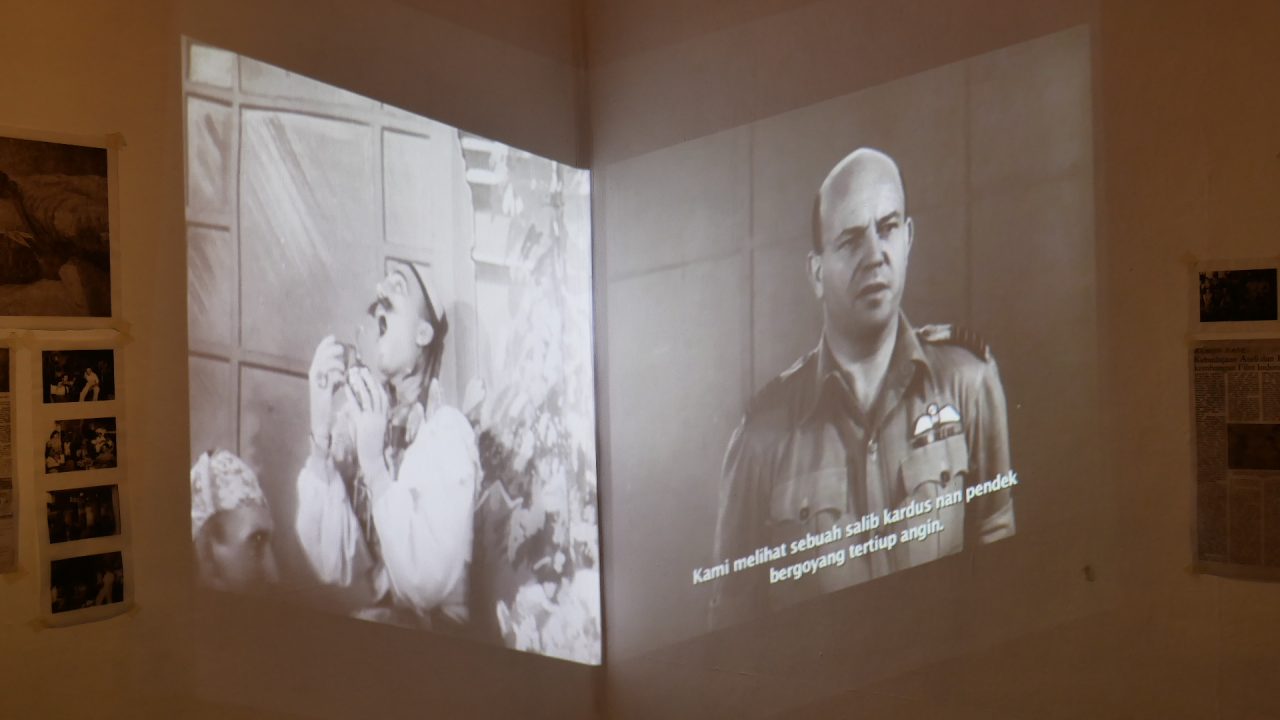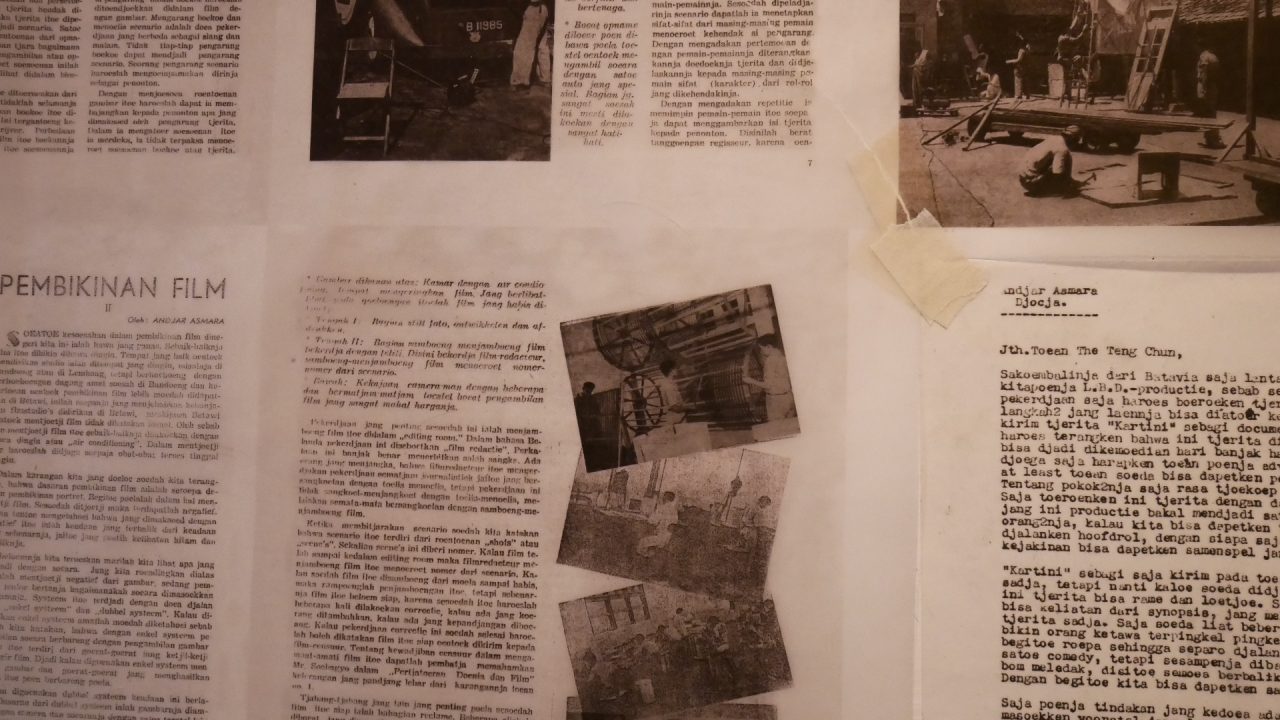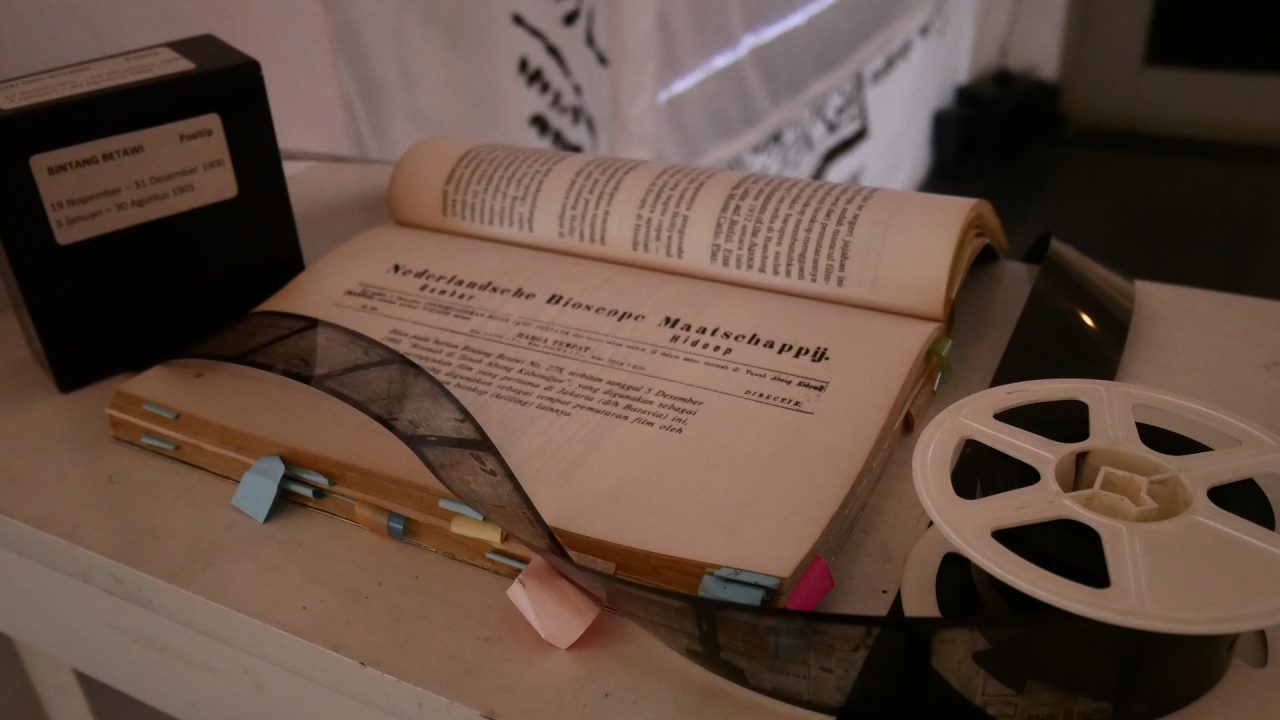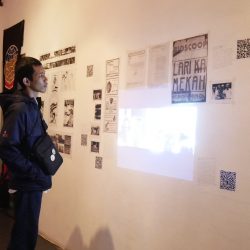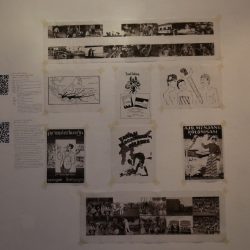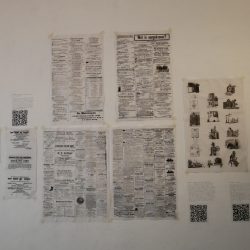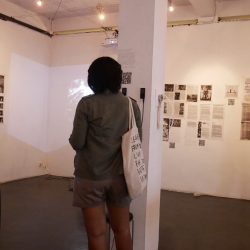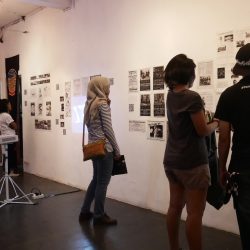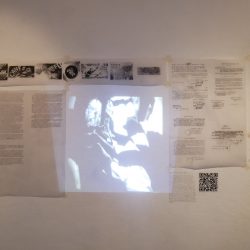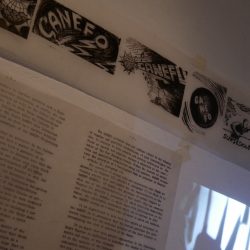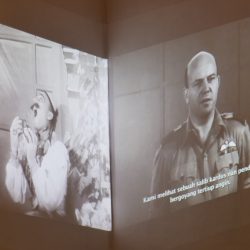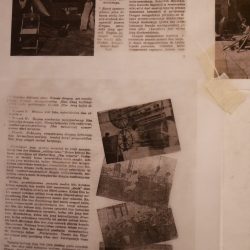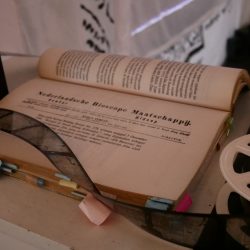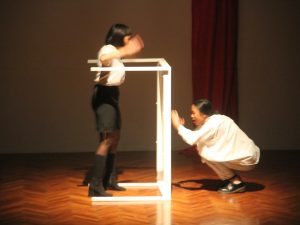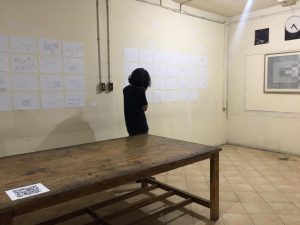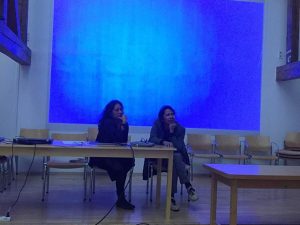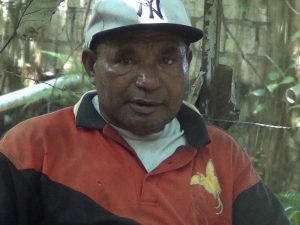Kultursinema’s traveling exhibition journey in 2019 has come to its next stop: Yogyakarta. On April 3, 2019, in Kedai Kebun Forum (KKF), Kultursinema Traveling Exhibition opened for public, officiated by its first-panel discussion on “Cinema Space and Film Archives”. In this session, the speakers we’ve invited were Suluh Pamuji (Klub DIY Menonton), Hardiwan Prayoga (Bioskop Festival Kesenian Yogyakarta), Rugun Sirait (Festival Film Dokumenter), dan Arie Kama (Cafe Society). The discussion was moderated by Luthfan Nur Rochman, as a part of the Kultursinema team. In this panel, the audience was invited to discuss with the background that the film has several layers of perspective that it has the opportunity to be read and explored through one perspective to the other. For example, one day, a film could be read through a political perspective, but later, it could be read through an economic perspective. On the other side, film archives are one of the sources of inspiration and screening material for watching spaces. The usage and management of those archives could be a strategy for watching spaces to survive in the middle of flagging film production. On April 4th, 2019, Kultursinema held screenings of two films, ‘Tie Pat Kai Kawin (Siloeman Babi Siloeman Monjet) by The Teng Chun on 1935, and Matjan Berbisik by Tan Tjoei Hock on 1940. On the first film, The Teng Chun chose the story of a half-pig half-human creature, Tie Pat Kai, as the central figure. The film is full of fantasy images and simple cinema tricks. On the 1930s, Chinese fantasy and folklore films were popular in Indonesia. Tie Pat Kai Kawin is the oldest film stored in Sinematek Indonesia and is a film that represents the period of Indonesian cinema history before Terang Bolean (1937). Matjan Berbisik was produced by Action Film, a division in Java Industrial Film company specialized in the production of action films. The screenplay was written by its own director, Tan Tjoei Hock. On its publication, the film—which was titled in Dutch De Fluisterende Tiiger—was made for all ages, including children. On the third day, April 5, 2019, the second-panel discussion was held. The speakers were Christopher Woodrich, a researcher of Indonesian film advertisements, and Umi Lestari, a young film critic. The speakers talked about film history that encompassed the history of technology, stylistics, social, and politics. Beside film criticism, works that are commonly found are academic texts that discussed the sociological and cultural context of the culture of Indonesian cinema and made film archives as a data source for history studies. But, text that uses the framing of systematic history writing and is valid as film history canon hasn’t been written since Misbach Yusa Biran, Taufik Abdullah, and S.M. Ardan with their book Film Indonesia Bagian I (1900-1950), or Indonesian Film Part I (1900-1950). The second screening was held on April 6, 2019, 7 PM. The films screened were Gagak Item by Joshua Wong and Othniel Wong (1939) and Srigala Item by Tan Tjoei Hock (1941). Gagak Item was a heroic drama film with some comedy, starring Rd. Mochtar and Roekiah, and written by Saeroen, the writer of Terang Boelan. Terang Boelan also inspired this film, which presented at least four musical scenes involving composer Hugo Dumas and keroncong singer Annie Landouw from keroncong modern group Lief Java. The second film, Srigala Item (Dutch: De Zwarte Wolf), had been screened not only in cinemas for the lower-class audience but also in upper-class cinemas such as Cinema Palace and Princess. The film was inspired by the story of Zorro that was made into a film and screened in East-Indies on the 1920s. The director of photography of the film was The Teng Gan, brother of The Teng Chun—different from other films directed by Tan Tjoei Hock who also handled the camera. The last panel discussion was held on April 7, 2019, which marked the end of the Kultursinema Travelling Exhibition in Yogyakarta. The speakers were Agan Harahap, an artist whose works are based on photo archives, Lisistrata Lusandiana, director of IVAA, and Afrian Purnama, film curator and part of Kultursinema team. The panel discussed archives as records of past events that have been given the context of the background situation when the event took place. Readers of the archives in the present time have their own background and perception on the archives. This panel discussed how the readers view and interpret the archives, and manage the archives into a new product of art that has its own relevance, and expose possibilities of new interpretations of history by the audience. Year Yogyakarta, Indonesia
2019
Kultursinema Traveling Exhibition – Yogyakarta, 2019
